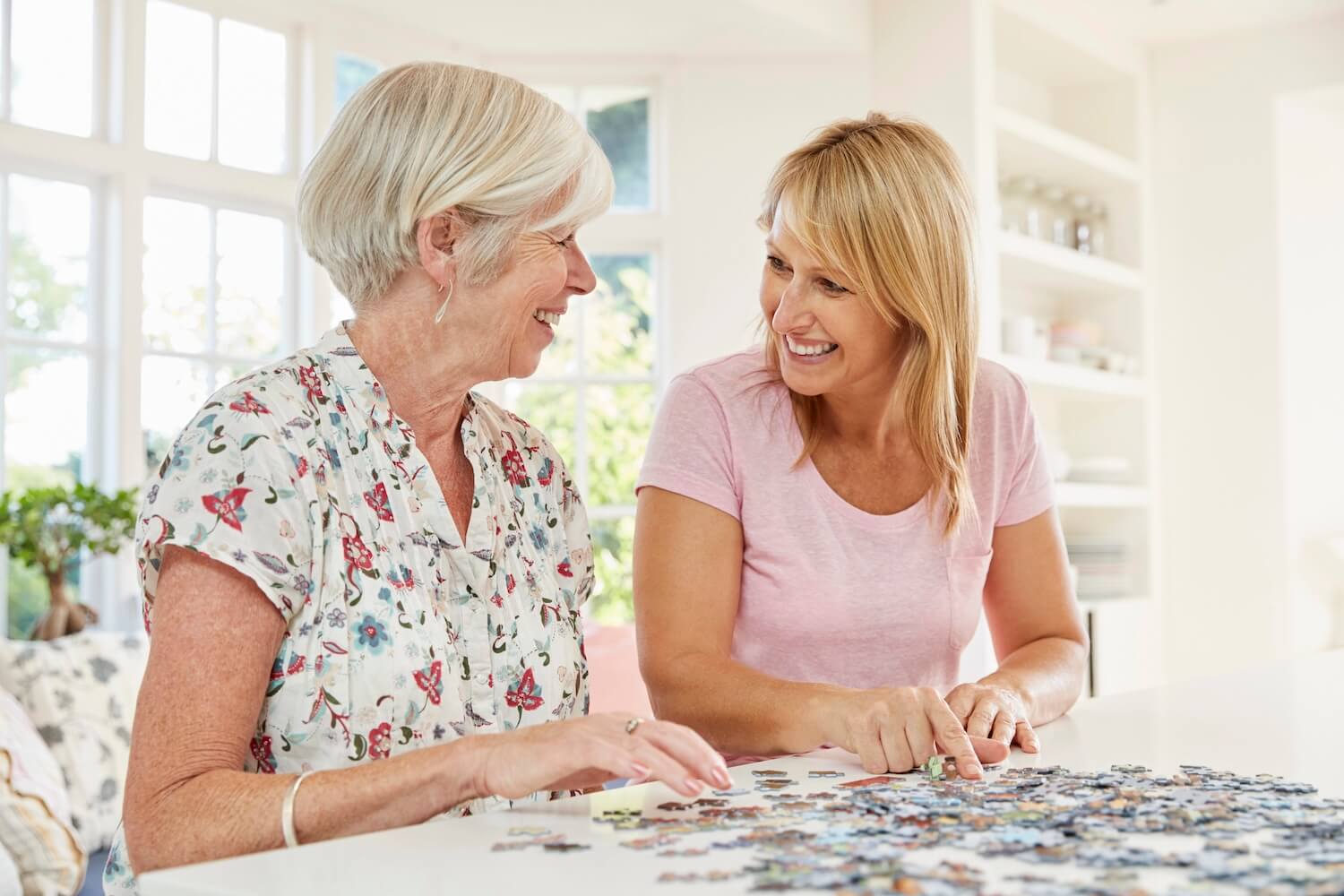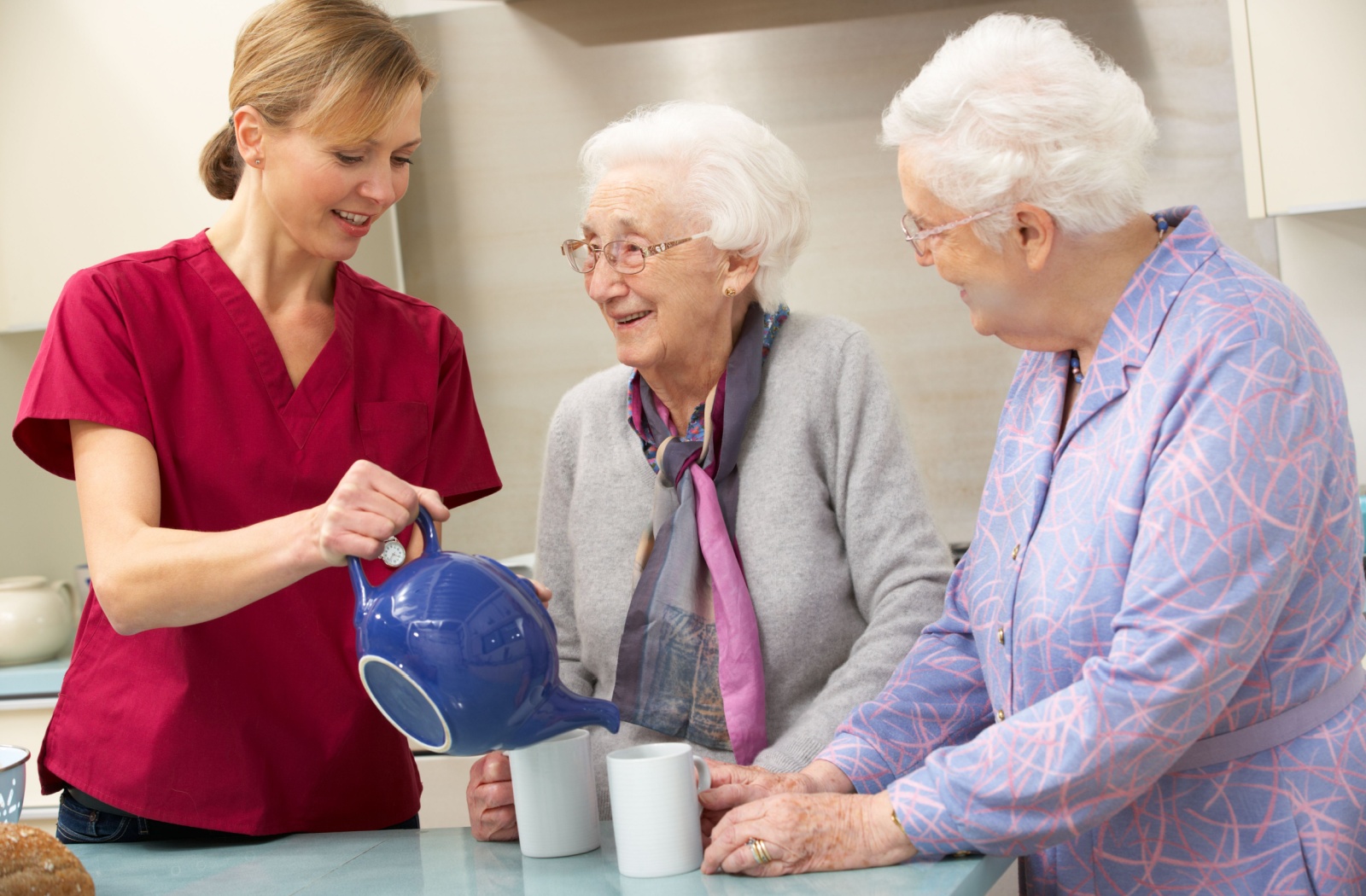Creating a Safe and Helpful Environment for Alzheimer's Treatment
The development of a secure and supportive setting for people with Alzheimer's is extremely important in improving their high quality of life. Discovering these complex approaches can reveal essential understandings right into reliable caregiving strategies that may transform the daily experiences of both patients and caregivers.
Understanding Alzheimer's Needs
Frequently, individuals with Alzheimer's condition show a series of demands that call for customized techniques to care. As the problem advances, cognitive decrease manifests in various ways, impacting memory, thinking, and also the capability to perform daily tasks. Caretakers need to acknowledge these developing needs to provide ideal assistance and guarantee a higher quality of life for those influenced.
One important element of understanding Alzheimer's needs is identifying the value of routine and knowledge. People typically find convenience in well established patterns, which can decrease anxiety and complication. Caregivers need to aim to create organized daily timetables that integrate meaningful tasks aligned with the individual's rate of interests and abilities.
Additionally, reliable communication is extremely important. Individuals with Alzheimer's might have a hard time to reveal themselves or comprehend complex language. Caregivers must use straightforward, clear language, use non-verbal signs, and method energetic listening to cultivate understanding and connection.
Last but not least, psychological and social requirements can not be forgotten. Offering chances for social interaction and preserving partnerships can substantially enhance emotional well-being. Caregivers must motivate engagement in neighborhood tasks or family members events, promoting a feeling of belonging and objective. Understanding these varied needs is necessary for developing a supportive care atmosphere.
Creating a Safe Home
Developing a safe home for people with Alzheimer's disease is important to advertising and lessening dangers independence. Make certain that pathways are well-lit and clear, as appropriate illumination reduces disorientation and boosts movement.
Including adaptive attributes is also essential. Mount grab bars in restrooms and near staircases, and think about making use of non-slip mats in wet locations. Additionally, making use of contrasting colors for floorings and walls can help in distinguishing areas, aiding to reduce confusion.
Knowledge is essential for people with Alzheimer's. Customizing the setting with acquainted objects and photos can reinforce a sense of belonging and protection - Alzheimers Care Charlotte. It is also helpful to have actually a designated area for day-to-day activities, such as reading or crafting, which can supply framework to their day
Last but not least, executing a safe exterior space enables for risk-free expedition while attaching with nature. By thoughtfully developing the home atmosphere, caretakers can significantly enhance the lifestyle for people coping with Alzheimer's condition.
Enhancing Communication Skills

Non-verbal interaction, including facial expressions, gestures, and touch, plays a crucial duty in sharing empathy and understanding. Keeping eye contact and a calm demeanor can boost the convenience level of the person, promoting a sense of safety and security.
In addition, it is necessary to practice energetic listening. This includes being fully present, revealing persistence, and allowing the individual to express themselves without disturbance. Repeating may be essential; caregivers should be prepared to take another look at topics or inquiries, as individuals with Alzheimer's might fight with memory recall.
Additionally, utilizing visual help or hints, such as pictures or familiar things, can help with acknowledgment and interaction. Ultimately, improving communication skills has to do with developing trust fund and producing an environment where people really feel heard, valued, and comprehended, thereby enhancing their lifestyle.
Motivating Social Interaction
Fostering purposeful social communications can greatly enhance the health of individuals with Alzheimer's condition. Involving with others not just helps battle sensations of seclusion but likewise boosts cognitive feature and emotional health and wellness. Structured social tasks, such as team crafts, arts and video games, or songs therapy, produce possibilities for residents to get in touch with peers and caregivers, which can cause boosted mood and reduced stress and anxiety.
Producing a welcoming setting that encourages socialization is crucial. This can be attained by arranging communal spaces that help with interaction, such as relaxing seating locations or task spaces. In addition, including culturally pertinent and acquainted tasks can trigger memories and urge engagement, permitting people with Alzheimer's to really feel even more connected to their past experiences.
Furthermore, caregivers need to be educated to recognize and advertise social interaction among homeowners. By focusing on social interaction, we can dramatically enhance the lives of those living with Alzheimer's, fostering a feeling of neighborhood and belonging.
Sustaining Caregiver Well-being

To support caretakers, companies should use normal training and educational resources to improve their understanding of Alzheimer's illness and caregiving strategies. Providing access to break care solutions permits caretakers to take necessary breaks, minimizing stress and anxiety and exhaustion - Alzheimers Care Charlotte. Additionally, promoting a neighborhood via support system can facilitate emotional sharing and the exchange of practical recommendations amongst caretakers, developing a network visit our website of mutual support
Mental health and wellness resources, such as counseling services, can likewise be crucial in resolving the psychological toll caregiving can take. By focusing on caretaker health, we develop an even more lasting caregiving setting that not just profits the caretakers themselves however likewise improves the general high quality of care received by people with Alzheimer's. Inevitably, sustaining caretakers is an important component in fostering a compassionate and effective treatment setup.
Final Thought
In final thought, the development of a safe and supportive atmosphere for people with Alzheimer's is important to improving their top quality of life. By focusing on safety with thoughtful layout, fostering psychological well-being with familiar aspects, and advertising involvement via structured routines, caretakers can dramatically affect the overall experience of those influenced by this condition. Additionally, supporting caretaker wellness is essential, as it inevitably adds to a more thoughtful and efficient treatment atmosphere.
Repetition might be required; caretakers should be prepared to review inquiries or topics, as individuals with Alzheimer's might struggle with memory recall.
